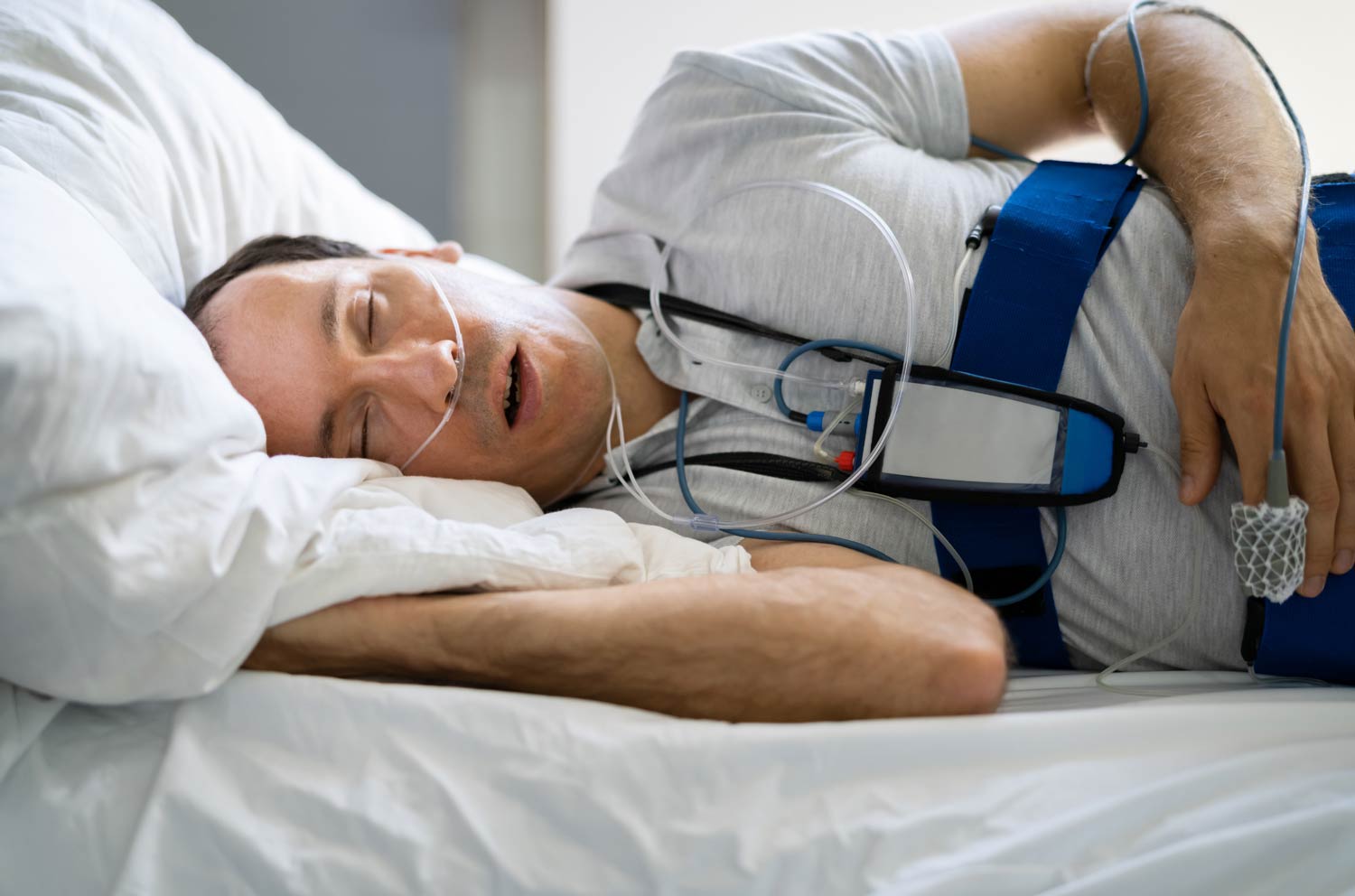NRH News
Newman Regional Health Sleep Disorder Center helps diagnose Sleep Apnea and other disorders

Better Sleep-Better Health: Sleep disorders diagnosed in Emporia
Sleep disorders are diagnosed through various assessments, including questionnaires, sleep history reviews, and diagnostic tests such as polysomnography (PSG) and home sleep apnea tests (HSAT). These tests allow specialists to monitor brain activity, breathing patterns, heart rate, and other vital functions during sleep, helping to diagnose conditions like obstructive sleep apnea (OSA), central sleep apnea, and periodic limb movement disorder.

In-Lab Sleep Studies (Polysomnography)
The sleep disorders team works closely with physicians and other healthcare providers to deliver comprehensive care. They prepare patients for sleep studies, set up equipment, and monitor patients throughout the night.
A typical in-lab sleep study includes:
- Preparation: Upon arrival, a sleep technician helps the patient get settled in a private, comfortable room and explains the procedure.
- Sensor Placement: Sensors are attached to the scalp, face, chest, legs, and other areas using adhesive patches or belts. These sensors measure brain waves, heart rate, eye movements, muscle activity, airflow, oxygen levels, and sleep fragmentation.
- Monitoring: While the patient sleeps, technicians monitor the data from another room to ensure everything is functioning properly.
- Duration: The overnight study usually lasts 6–8 hours. In the morning, the sensors are removed, and the patient may return home.
Home Sleep Apnea Testing (HSAT)
In addition to in-lab testing, Sheila Miller, RRT, RPSGT also oversees home sleep testing procedures. HSAT has become a convenient alternative for those who find it difficult to sleep in clinical environments.
Patients receive a portable device and instructions for setting it up at home. The equipment typically includes:
- A nasal cannula to measure airflow
- A finger clip to monitor oxygen levels
- A chest strap to measure respiratory effort
After wearing the equipment overnight, patients return it to the sleep center for data analysis.
Benefits of Sleep Medicine
Sheila Miller, RRT, RPSGT, says: “The benefits of sleep medicine extend far beyond improving sleep quality. When sleep disorders are left undiagnosed and untreated, they can lead to a wide range of serious health complications.”
Key benefits include:
- Improved sleep quality, energy levels, and daytime alertness
- Lower risks of hypertension, heart disease, diabetes, and stroke
- Enhanced mental clarity, mood, and focus
- Relief from conditions like depression and anxiety
The center offers state-of-the-art diagnostic services and a wide range of treatment options, emphasizing patient comfort and individualized care. A dedicated team of professionals works diligently to identify sleep disorders and offer personalized solutions.
With expert guidance from the Newman Regional Health Sleep Disorders Center, you can receive an accurate diagnosis and effective treatment to improve your sleep and overall well-being.
If you believe you could benefit from a sleep study, contact your Primary Care provider today.
Learn more: Newman Regional Health Sleep Disorders Center
Related Articles
Newman Regional Health Sleep Disorder Center unites your provider with treatments
Better Sleep-Better Health: Getting tested and treated in Emporia Sleep Apnea is characterized by several key symptoms that can significantly…
Newman Regional Health Sleep Disorders Center Renews Accreditation
Better Sleep-Better Health: High Quality Care Newman Regional Health Sleep Disorders Center is proud to announce the recent renewal of…
